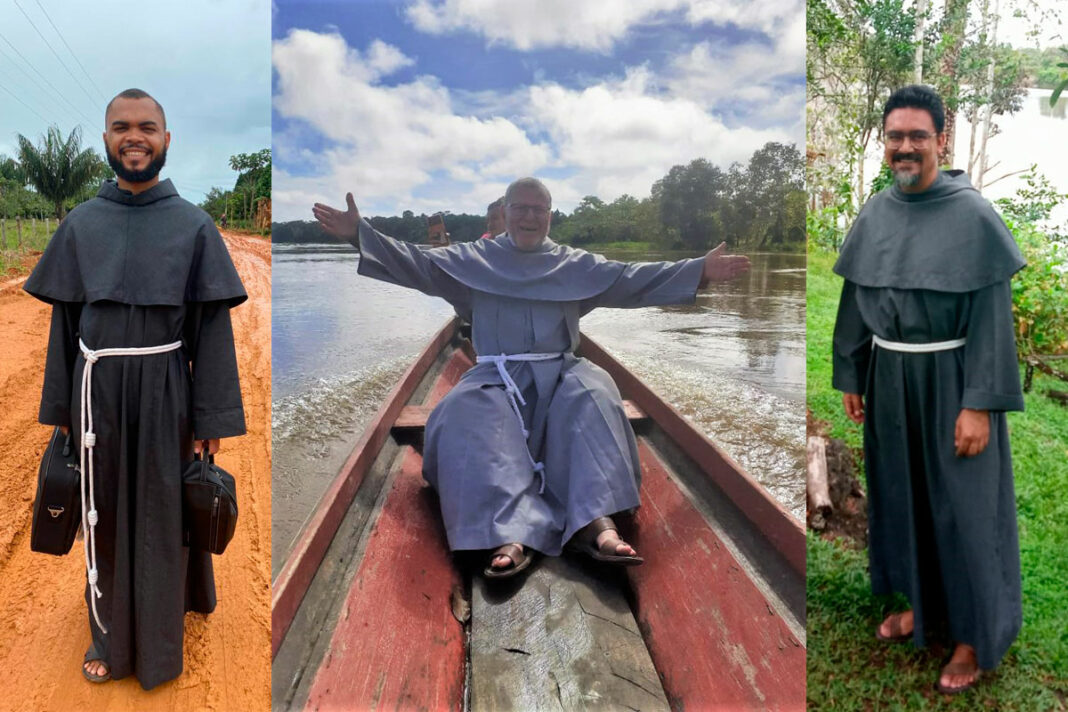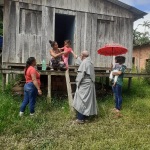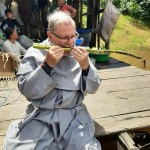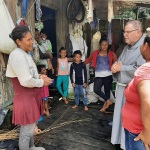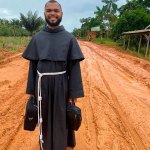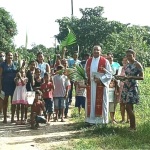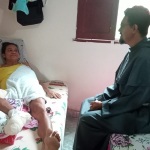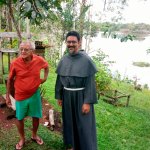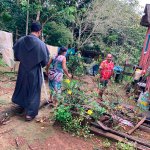The Province of St. Maximilian M. Kolbe in Brazil has a strong presence in that nation’s Northeast and Central-West major regions. Among the various fronts of the Province’s pastoral and apostolic activities, its missionary work in northern Brazil stands out, particularly in the Amazon region.
The Province has been carrying out this missionary work for the past seventeen years. The work of the friars, particularly in the Amazon region, is noteworthy because it continues to develop and always requires special attention. The friars have presences in the cities of Tefé and Juruá, as well as in Manaus, the capital of the State of Amazonas.
The Conventuals’ mission in the Amazon region began in 2005, with the arrival of Friar Augustyn (Agostinho) Stefan JANUSZEWICZ, OFM Conv., later Bishop of Luziânia, State of Goias, Brazil. Friar Augustyn devoted himself to carrying out a mission in an area that needed religious assistance. He set a great example of dedication in Juruá and thereafter made it possible to conduct other works in the Prelature of Tefé. In Juruá, he began doing missionary work at the Nossa Senhora de Fátima Parish and, after a few years, other friars joined him and took charge of the Santo Antonio Parish in Tefé. Both cities became bases for the Province’s Mission House. From that site, the friars would go by boat to evangelize the indigenous peoples living along the riverbanks of the Amazon region. The missionary friars visit families and celebrate the sacraments. They carry out pastoral ministry, promote human development and give evangelical witness. In fact, they are connected with the lived reality of the Church, taking on its great concern for the Mission Ad Gentes and being mindful of the Exhortation Evangelii Gaudium No. 115: “Grace supposes culture, and God’s gift becomes flesh in the culture of those who receive it.” The friars have responded with great enthusiasm and ardor regarding the missionary needs of the Church, as presented by His Holiness, Pope Francis, by the Most Reverend Leonardo Ulrich STEINER, OFM, Archbishop of Manaus, State of Amazonas, Brazil and by the new bishop, the Most Reverend José ALTEVIR DA SILVA, (Congregation of the Holy Spirit) Prelate of Tefé, State of Amazonas, Brazil.
The friars’ missionary work aims at lovingly assisting the Amazonian people, mindful of their diverse cultural riches. The friars have been working with the indigenous peoples living along the riverbanks, which represent several different ethnic groups. The friars have been adapting to the cultural values of these peoples by means of Franciscan spirituality. The mission of the friars is intended to strengthen communion and openness with all, as an extension of God’s love in creation, because the process of inculturation, which involves “not only individuals but also peoples, demands a respectful and understanding love for those peoples”[1].
The missionaries hope that through their charism they may give witness to the sanctity that belongs to the Amazonian people. The friars aim to dedicate themselves to a mysticism of encounter, seeking closeness, developing the contemplation of the beauty of nature, doing God’s work among the Amazonian people by sharing their presence, the Word and the sacramental life. Recognizing the sanctity inherent in the Amazonian peoples challenges the missionaries to appreciate the universal dimension of the Church, through the process of inculturation, and to give witness to the path of unity and inclusiveness, as Pope Francis suggests: “Nowadays, it is essential to show that holiness takes nothing away from our ‘energy, vitality or joy’” [2].
Missionary work requires the understanding that indigenous peoples are wary of any mission that does not identify with their realities, that seeks to disprove their religious culture, or involves their human, cultural or religious exploitation. The great challenge for missionaries is to actualize the perception of Christ in the Amazonian reality: “the Amazon region challenges us to transcend limited perspectives and ‘pragmatic’ solutions mired in partial approaches, in order to seek paths of inculturation that are broader and bolder”[3]. Therefore, the missionary must act with a sense of solidarity, stimulating a culture of encounter. He never promotes the idea that he is culturally superior. He works within the Franciscan context, acknowledging cultural and religious variations, and responding to new challenges, such as the image of the river in the Amazon perspective as something that never separates, but unites, different cultures and languages.
Conventual Franciscan missionaries therefore maintain their solid faith in the Risen Christ and in the Magisterium of the Church, but they also know how to be in solidarity with the reality and novelty of the mission. In this work of the Church, in the Amazonian setting, the action of the Incarnate Word is made visible in cultures that glimpse the potential beauty of giving witness to the love of God and St. Francis, as it is reflected in the way the friars love the riverbank people, other ethnic groups and nature.
Friar Gilberto DE JESUS RODRIGUES, Minister Provincial.
[1] Pope Francis, Apostolic Exhortation Querida Amazonia, no. 78
[2] Ibid no. 80
[3] Ibid no. 105






